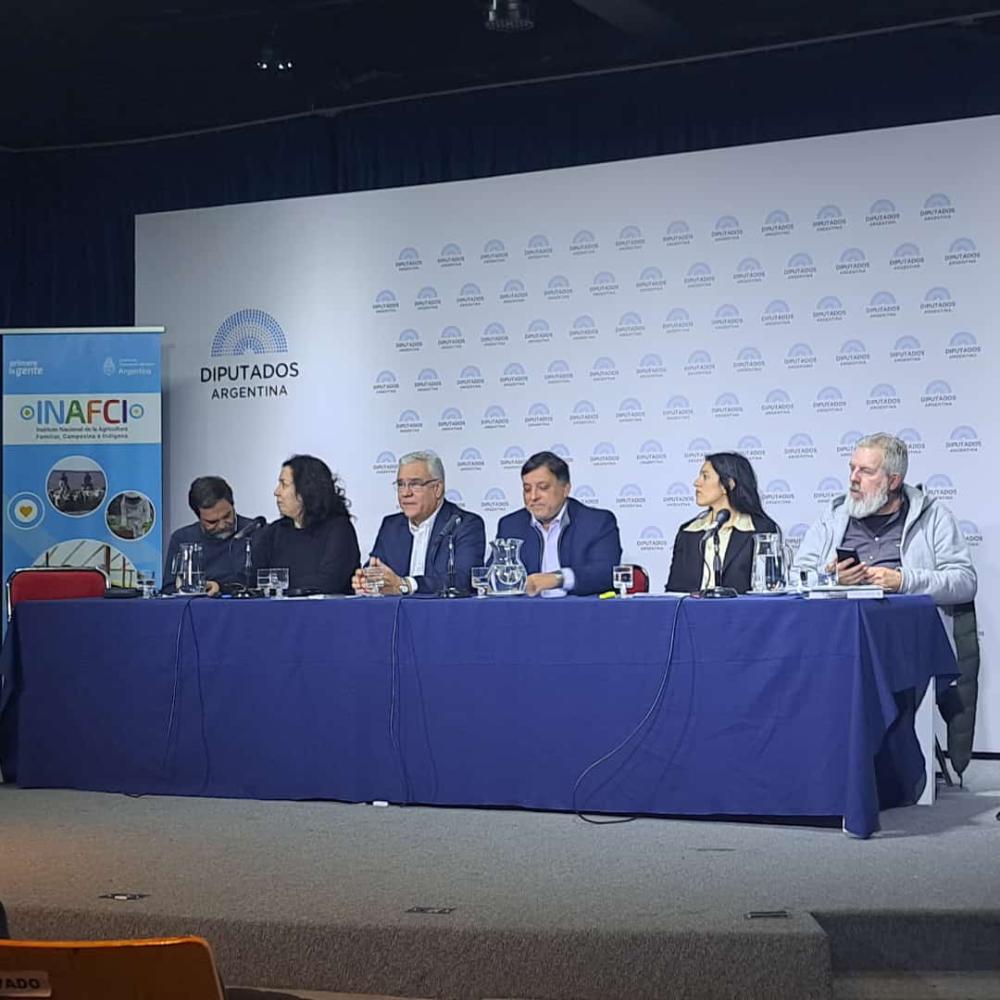Argentina advances in the development of its National Family Farming Plan, in dialogue with peasant and indigenous organizations and with the participation of IICA

Buenos Aires, 11 September 2023 (IICA) – In front of a massive audience of small-scale producers from all over the country, the Argentine Government and various rural organizations presented the main guidelines of their Action Plan for the Decade of Family, Peasant and Indigenous Farming, which is bein g prepared with the participation of the Inter-American Institute for Cooperation on Agriculture (IICA) and other international organizations.
The activity took place in one of the auditoriums of the Chamber of Deputies of Argentina, in Buenos Aires, and was headed by the president of the National Institute of Family, Peasant and Indigenous Farming (INAFCI), Miguel Ángel Gómez. One of the speakers was the IICA Representative in Argentina, Fernando Camargo.
Family farming not only produces most of the food that can be found on Argentine tables on a daily basis, but it is also the driving force of development in rural territories.
At a global level, it offers a unique opportunity to shore up food security, better manage natural resources, improve the livelihoods of rural inhabitants and achieve sustainable development.
Argentina's action plan is being developed with the participation of family farmer organizations from across the country, who are key players in a process that seeks to empower and listen to them to generate new public policies.
The initiative aims to boost regional economies, promote employment, address the socio-environmental concerns of the territories, focus on the production of healthy foods, while also placing emphasis on gender equity and the inclusion of youth.
The project is part of the United Nations Decade of Family Farming (2019-2028), which is an operational part of the 2030 Agenda and the Sustainable Development Goals (SDGs). Furthermore, Argentina, as the president pro tempore of Mercosur in the first half of this year, promoted the creation of the Decade of Family Farming in Mercosur, by which the States parties are urged to develop plans that promote healthy agri-food systems and sustainable, equitable and resilient productive processes.
In Argentina, Law 27,118, on Historical Reparation of Family Farming, was passed nine years ago, and was recently regulated.
Taking root in the countryside
“We have been witnessing the departure of farmers from the most remote rural areas of Argentina for 50 years. That is a process that we must reverse,” said Gómez, president of INACIF, who explained that the Action Plan for the Decade of Family Farming has already been discussed with peasant and indigenous grassroots organizations and will now be debated in the National Congress.
Gómez considered that the Covid-19 pandemic made it clear that family farming makes a decisive contribution to food security and stated that in Argentina it is necessary to “rethink” how the territory will be inhabited. “92% of the country's population lives in ten or eleven large cities. We must build a new rurality. There is no nobler task than producing food and that activity must be a source of progress. Family farming is a life proposal,” he stated.
Fernando Camargo pointed out that promoting family farming is one of IICA's priorities, due to its central role in the eradication of hunger, its contribution to the construction of a more balanced planet and to the livelihoods of rural inhabitants.
“Family farming – he added – is key to putting food on people's tables and to breaking the agri-food monotony. Although there are 7,000 edible plant species, of which about 400 are cultivable, we only eat about 20 on a daily basis. Traditional peoples used to eat a more varied diet, which demonstrates the importance of appreciating ancestral agricultural knowledge".
Marina Cardelli, Undersecretary of National Affairs of the Argentine Foreign Ministry, also participated in the presentation, where she stressed that family farming produces 80% of the world's food, but paradoxically the majority of smallholder farmers are poor. “We must raise awareness,” she said, “that without family farming there is no future for the planet”.
More information:
Institutional Communication Division.
comunicacion.institucional@iica.int